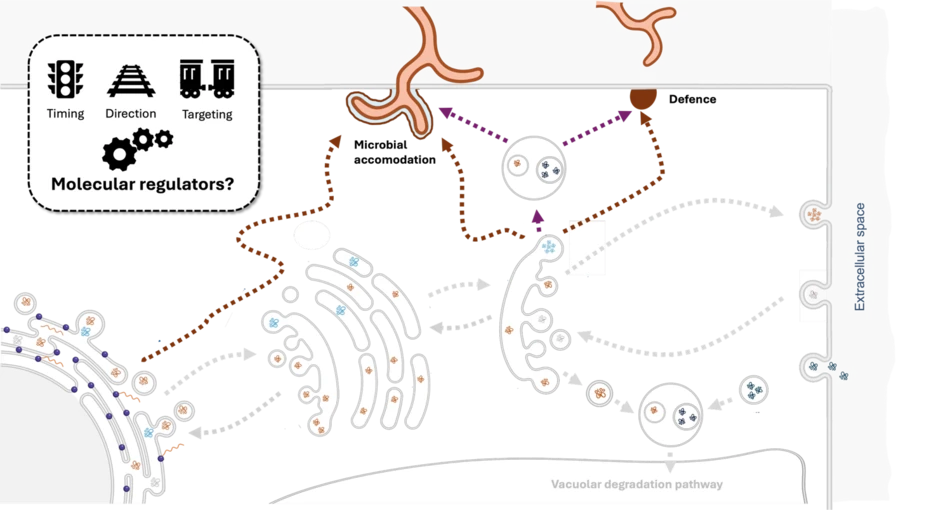Transport mechanisms shaping plant-microbe interactions
Sabine Brumm
https://orcid.org/0000-0003-1498-3880
Like all living organisms, plants must precisely regulate the movement of essential bio-molecular cargoes—such as proteins, sugars, and lipids—within and beyond their cells. The underlying cellular traffic is pivotal for normal development of a functional plant as well as in response to environmental challenges. Cargo distribution depends on dynamic transport systems that guide materials along cytoskeletal filaments. To specialize, divide or communicate, cells often polarize transport by selectively sorting cargo and redirecting it through rearrangements of the cytoskeleton. Ensuring the accuracy of these processes requires finely tuned molecular machineries that precisely control the timing and direction of membrane formation, transport and fusion (Richter et al, 2014, Sing et al., 2014, Brumm et al., 2020; Brumm et al., 2022), as well as cytoskeletal dynamics (Brumm et al., 2025).
When plants encounter various microbes, the outcome of interaction - be it successful colonization or a defensive response - is largely determined by the timely delivery of plant materials to the invasion site. We utilise a multidisciplinary approach that integrates cell biology, biochemistry, advanced microscopy, transcriptomics and proteomics to identify cellular regulators that coordinate dynamic transport processes at the plant-microbe interface. We focus on transport processes that directly influence plant-microbe interactions and on those developmental pathways that shape these interactions. We study commonalities and differences of respective regulators across different host species and various microbial lifestyles. Ultimately, we aim to understand how transport systems can be adapted to improve both disease resistance and beneficial symbiotic relationships.
